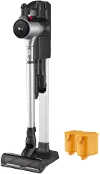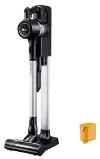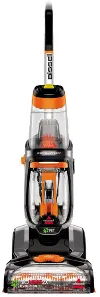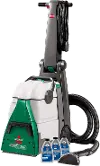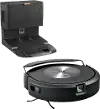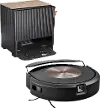RC Willey Appliances Vacuums & Floor Care
Shop Vacuums at RC Willey
Keep your floors clean by efficiently removing dirt, dust, and allergens from various surfaces. We carry many styles including upright, canister, robotic, and handheld models, each designed for specific cleaning needs.
#myrcwilleyhome
See how real customers are transforming their spaces with RC Willey. Get inspired, share your style, and create a space that's Your Home. Your Way.
Explore NowExplore the Best Vacuum Selection at RC Willey
First things first, let's tackle a common spelling conundrum: Is it 'vacuum' or 'vaccum'? The correct spelling might be tricky, but one TikTok creator has devised a clever mnemonic to help you remember. Simply think of what a vacuum does: It 'vanishes and cleans up unsightly messes.'
Now that we've cleared that up, welcome to RC Willey.
We are your go-to destination for a wide range of vacuum cleaners that cater to all your cleaning needs. Whether you're tackling pet hair or ensuring your hardwood floors are dust-free, our collection features everything from classic upright vacuums to innovative robot vacuums. Dive into our world of powerful suction, cordless convenience, and advanced filtration systems.
Different Types of Vacuum Cleaners
There are several types of vacuum cleaners, each designed to tackle different tasks:
- Upright Vacuums: These are great for general cleaning and are powerful enough to clean large carpeted areas. Many come with additional attachments for cleaning upholstery or hard-to-reach spots.
- Handheld Vacuums: Small and portable, handheld vacuums are perfect for quick clean-ups or tackling messes in tight spaces, like your car, furniture, or stairs. They're lightweight and easy to store, making them great for quick jobs.
- Stick Vacuums: Lightweight and compact, stick vacuums are perfect for quick clean-ups or homes with limited storage space. Many models are cordless for added convenience.
- Robot Vacuums: If you want hands-off cleaning, robot vacuums are a great choice. They’re ideal for maintaining clean floors with minimal effort, though they may not be as powerful as traditional vacuums.
Features to Consider in a Vacuum Cleaner
When shopping for a vacuum, it’s important to consider features that will best suit your needs. Some features to look for include:
- Suction Power: The stronger the suction, the better the vacuum will perform on carpets and upholstery.
- Filtration: If you have allergies, look for a vacuum with a HEPA filter to trap dust, pollen, and other allergens.
- Cord Length or Cordless: Depending on the size of your home, you may prefer a longer cord or a cordless model for greater mobility.
- Attachments and Tools: Extra tools like crevice tools, upholstery brushes, and dusting brushes make it easier to clean different surfaces and tight spaces.
- Weight and Maneuverability: If you have stairs or tight spaces, a lightweight vacuum that’s easy to carry and maneuver is important.
Best Vacuums for Specific Needs
Different homes and lifestyles have different cleaning needs. Here are some recommendations based on your unique situation:
- Best for Pet Owners: Vacuums with strong suction power and specialized pet hair attachments, like the Dyson Animal series or Shark Navigator Lift-Away, can help tackle fur and dander.
- Best for Allergies: A vacuum with a HEPA filter, such as the Miele Complete C3, will help trap allergens and improve air quality in your home.
- Best for Small Spaces: Stick vacuums, like the Dyson V11 or Shark Rocket, are compact and easy to store, making them perfect for apartments or homes with limited space.
- Best for Large Homes: For bigger spaces, an upright vacuum with powerful suction and large dustbin capacity, like the Hoover WindTunnel or Shark Apex, can handle larger cleaning jobs efficiently.
Suction Power and Performance
When it comes to vacuum cleaners, suction power is one of the most important factors in determining how well the vacuum will perform. Whether you’re dealing with carpets, hardwood floors, or pet hair, understanding suction power and performance can help you choose the best vacuum for your needs.
Understanding Suction Power
Suction power refers to the vacuum's ability to pick up dirt, dust, and debris. It’s typically measured in watts or air watts, and higher numbers generally indicate stronger suction. A vacuum with powerful suction can clean deeper into carpets and pick up larger debris more effectively. However, suction power isn’t the only factor to consider—other elements like airflow, motor size, and brush design can also play a role in how well the vacuum performs on different surfaces.
For carpets, you’ll want a vacuum with strong suction to dig deep and pull out dirt that’s embedded in the fibers. For hardwood floors, high suction can help you pick up fine dust and dirt without pushing it around. Be sure to check the specs of your vacuum to understand its suction capabilities, especially if you have a variety of flooring types at home.
Comparing Vacuum Settings for Strongest Suction
Many vacuums come with multiple settings to adjust the suction power for different cleaning tasks. These settings allow you to customize the vacuum’s performance based on the surface you’re cleaning. For example:
- High Suction: Best for deep-cleaning carpets, heavy dirt, and pet hair. The stronger suction helps lift embedded debris from carpet fibers.
- Low Suction: Ideal for hardwood floors, rugs, and delicate surfaces. It prevents the vacuum from pushing dirt around or causing damage to sensitive flooring.
- Variable Suction: Many modern vacuums allow you to adjust suction power as needed. A vacuum with variable suction is versatile and ensures you get the best performance no matter the cleaning task.
When comparing different vacuums, consider whether the suction settings will meet your needs. Some models automatically adjust suction power depending on the floor type, which can be especially convenient if you have mixed flooring in your home.
Budgeting for Vacuum Cleaners
Vacuum cleaners come in a wide range of prices, and while it’s tempting to go for the most affordable option, investing in a higher-quality vacuum can make a big difference in cleaning performance and durability. Let’s take a closer look at what you should consider when budgeting for a vacuum cleaner.
Do You Need an Expensive Vacuum?
Not necessarily! While high-end models often come with advanced features and extra power, many mid-range vacuums offer great performance at a more affordable price. The right vacuum depends on your needs—if you have pets, allergies, or large spaces to clean, a higher-end model may be worth the investment for its superior suction power and specialized attachments. However, if you only need a vacuum for light cleaning or small spaces, you can find plenty of quality vacuums at a more budget-friendly price.
What Should a Good Vacuum Cost?
A good vacuum can range from as low as $100 for basic models to over $500 for high-performance, feature-packed machines. For most people, a quality vacuum falls somewhere in the $100 to $300 range, offering a solid mix of performance, durability, and useful features like HEPA filtration or adjustable suction. For example, a mid-range model with a solid motor and essential attachments can handle most cleaning jobs without breaking the bank.
The price often reflects the suction power, motor quality, and extra features such as cord length, filtration systems, and the number of accessories included. Keep in mind that paying a little more for a vacuum that will last longer and clean more effectively can be a wise long-term investment.
Determining the Best Value for Money
When deciding which vacuum offers the best value for your money, consider the following:
- Durability: Does the vacuum have a reputation for lasting? A vacuum that lasts longer without needing repairs or replacement parts offers better long-term value.
- Features: Look for vacuums that include features that matter most to you. For example, if you have pets, a vacuum with a motorized brush and specialized pet tools may be worth the extra investment.
- Efficiency: Higher efficiency means better performance and faster cleaning. Check the suction power, filtration, and ease of use to make sure you’re getting a vacuum that meets your needs.
- Warranty: A good warranty can offer peace of mind. Vacuums with longer warranties are usually more reliable and a better value over time.
By evaluating these factors, you can find a vacuum that offers the best performance for your budget.
Maintenance and Longevity
A vacuum cleaner is an investment in keeping your home clean, so it’s important to take good care of it to ensure it lasts for years. Regular maintenance can extend the life of your vacuum and keep it running at peak performance. Let’s go over some tips for maintaining your vacuum and getting the most out of it.
Tips for Maintaining a Vacuum Cleaner
To keep your vacuum running smoothly, it’s important to perform regular maintenance. Here are some tips to help:
- Empty the Dustbin or Bag Regularly: Emptying the dustbin or changing the vacuum bag before it gets too full ensures the vacuum can maintain strong suction. Don’t wait until it’s completely full to avoid clogs and strain on the motor.
- Clean the Filters: Many vacuums have filters that need to be cleaned or replaced periodically. A clogged filter can reduce suction power and make your vacuum work harder. Check the owner’s manual for instructions on how often to clean or replace the filters.
- Check the Brush Roll: Hair, string, and debris can get caught in the brush roll. Check it regularly and remove any tangles or obstructions to prevent it from getting damaged or losing effectiveness.
- Inspect the Hoses and Cords: Make sure the hoses are free from clogs and the cords are undamaged. Regularly inspect for any signs of wear and tear to avoid unexpected issues while vacuuming.
Performing these simple tasks regularly can help your vacuum perform better and last longer.
How Long Should a Vacuum Last?
The lifespan of a vacuum cleaner depends on the brand, model, and how well it’s maintained. On average, a good vacuum can last anywhere from 5 to 10 years. High-quality models with durable motors and sturdy components can last longer, while budget-friendly options may need replacing sooner.
To maximize the life of your vacuum, make sure to follow the manufacturer's recommendations for maintenance and replace any worn-out parts as needed. Taking care of your vacuum can also ensure that it stays effective for years to come.
Ensuring Long-Term Durability
To ensure your vacuum lasts as long as possible, it’s important to follow a few guidelines:
- Avoid Overloading: Don’t push your vacuum too hard. If you’re dealing with large debris or excessive dirt, take extra time to clean it up in smaller sections.
- Store Properly: Always store your vacuum in a dry place and avoid exposing it to extreme temperatures. Keeping it in a cool, dry area will help maintain its internal components.
- Invest in a Quality Vacuum: While higher-end vacuums may cost more upfront, they’re often built with better materials and stronger motors, which can extend their lifespan. Look for vacuums with warranties or guarantees, as these can indicate a manufacturer’s confidence in the product’s durability.
By following these maintenance tips and investing in a well-made vacuum, you can ensure its long-term durability and continue to enjoy clean floors for years to come.
Frequently Asked Questions About Vacuums
- What type of vacuum is best for pet hair?
If you have pets, look for a vacuum designed specifically to handle pet hair. Vacuums with motorized brush rolls or tangle-free brush heads are excellent for picking up pet hair from carpets and upholstery. Additionally, models with HEPA filters can help trap allergens and improve air quality in your home.
- How often should I replace my vacuum filter?
The frequency of filter replacement depends on your vacuum model and usage. Generally, it's a good idea to clean or replace the filter every 3 to 6 months. If you use your vacuum regularly or have pets, you may need to replace it more often to ensure optimal performance.
- Can a vacuum cleaner pick up large debris?
While most vacuums can handle small debris, some models are designed to pick up larger items, like cereal or pet food. Upright vacuums with strong suction power and larger dustbins are typically better for tackling larger debris. Check the vacuum’s specifications to make sure it can handle the type of messes you deal with.
- Should I buy a bagged or bagless vacuum?
Both bagged and bagless vacuums have their advantages. Bagged vacuums tend to be more hygienic and are better for people with allergies, as they trap dust and dirt in the bags. Bagless vacuums are more convenient and cost-effective over time, but they require more frequent emptying and cleaning of the dustbin.









